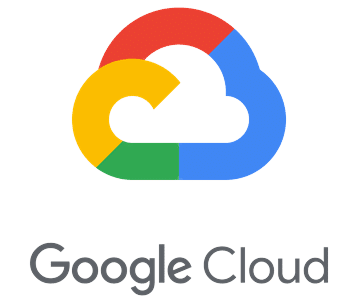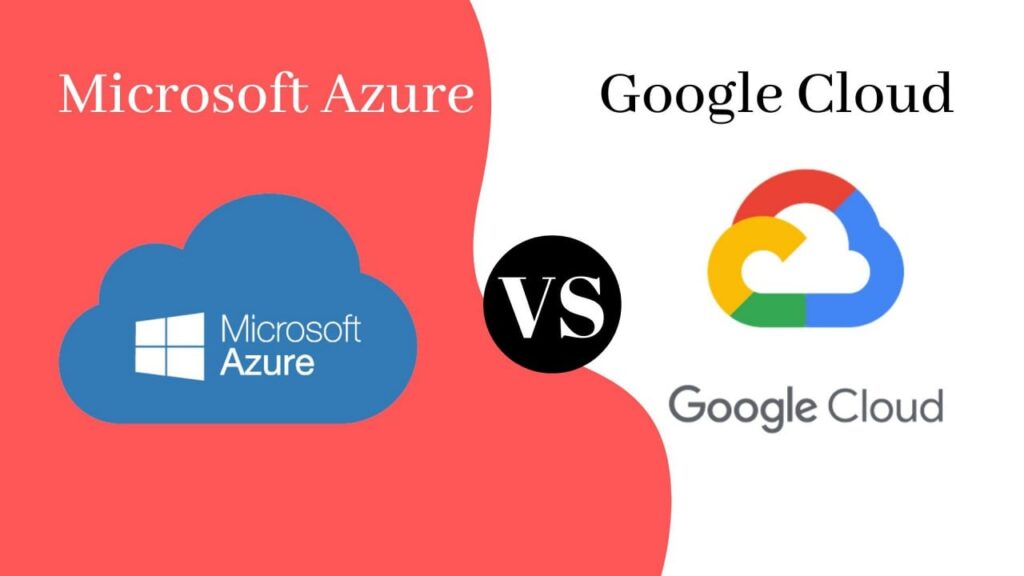Below we are Comparing Microsoft Azure and Google Cloud in depth. We have compared both Cloud service providers in different-different categories ie: Security & Compliance Differences, Pricing and Performance. Let’s talk about these later in this article.
Table of Contents
What is Microsoft Azure?
Microsoft Azure is a cloud computing platform and infrastructure developed by Microsoft. It provides users with on-demand computing, storage, network and other services through an ever-growing collection of integrated products. Microsoft Azure is designed to help companies manage their enterprise data, applications, and infrastructure more efficiently.
Azure enables businesses to develop scalable solutions that are cost-effective and secure. Organizations can take advantage of the scalability of the cloud by provisioning resources quickly and easily in the Azure environment. The resources can be used for development or production workloads including websites, mobile applications, virtual machines (VMs), databases and more.
Azure’s built-in security features such as authentication methods, encryption services and intrusion detection systems; organizations have peace of mind knowing their information is secure while using Microsoft Azure cloud services.

Azure offers two main versions – Platform as a Service (PaaS) and Infrastructure as a Service (IaaS). The PaaS version includes managed services such as App Service, Machine Learning and Cognitive Services for developing intelligent apps quickly; while IaaS allows users to access virtual machines (VMs), SQL servers, and HDInsight clusters for running large workloads in the cloud.
Additionally, with Azure Storage solutions users can store all types of data securely in the cloud. If you are interested in updating your skills in Microsoft Azure, our Azure Training in Chennai can help you to enhance your career.
What is Google Cloud?
Google Cloud is a cloud computing service offered by Google that provides on-demand access to virtual machines, storage, applications, and other services. It enables businesses to quickly develop and deploy applications in the cloud without needing to worry about purchasing and maintaining their hardware. With Google Cloud, companies can store and process data on Google’s infrastructure for added reliability and security.
Google Cloud is an online cloud computing platform developed by Google that allows users to store and access their data from any device, anywhere in the world. It is a suite of cloud-based services including storage, analytics, machine learning and artificial intelligence (AI), networking, and much more. With Google Cloud’s help, companies can create high-performance applications that are secure, reliable, cost-effective and easy to manage. Let’s Compare Microsoft Azure and Google Cloud.

The platform offers a wide range of products and services tailored to various business needs, such as machine learning (ML) capabilities, artificial intelligence (AI), analytics tools, developer productivity tools, enterprise security solutions, digital marketing platforms and more. Additionally, customers have access to more than 50 built-in products with integrated billing so they can easily manage their costs within a single platform.
Comparing Microsoft Azure and Google Cloud
The cloud computing market is expanding rapidly and two of the leading providers are Azure and Google Cloud. Both offer a wide range of services to suit businesses of all sizes, but there are clear differences between the two. When it comes to selecting a provider, it can be difficult to determine which one is best for your individual needs.
Azure provides access to over 600 services and products with its comprehensive offering, while Google Cloud offers an increasing number of services with its focus on AI and machine learning capabilities. Although both provide excellent data security, Azure offers more options for compliance certifications such as ISO 27001, SOC 1 & 2 Type II, HIPAA/HITECH, and FedRAMP High/DoD SRG IL5.
Cloud computing is becoming increasingly popular due to its ability to provide elastic, on-demand computing resources. Two of the largest cloud providers are Azure and Google Cloud Platform. Comparing these two services can help you decide which provider is best for your organization’s needs.
Azure is a comprehensive collection of integrated cloud services from Microsoft that provides users with analytics, storage, networking and computing capabilities. It supports multiple programming languages, frameworks and tools including .NET, Java, Node.js, Python and PHP. It also offers robust security features such as identity management and encryption of data at rest or in transit.
Google Cloud Platform (GCP) allows users to build applications on Google’s infrastructure using products like App Engine for web apps or Kubernetes for container orchestration. Also, you can go through the blog on Azure Data Factory which would help you enhance your knowledge and career to find the right job.
Differences in Pricing
Microsoft Azure and Google Cloud Pricing categories. Pricing is an essential factor when it comes to making a purchase decision. Depending on the product or service, there can be big differences in pricing among different companies. Knowing these differences can help customers make more informed decisions and save money in the long run. The type of industry, competition level and location all influence pricing structures.
For example, many popular items like electronics are typically priced lower due to higher levels of competition than less popular items such as collectables that may have fewer competitors and therefore higher prices. Additionally, prices may vary more drastically in markets with fewer competitors because each company will want its share of the market share leading to higher prices for customers.
Finally, geographical location is another factor that affects pricing structure due to differences in taxes and transportation costs from one region to another.
Security & Compliance Differences
Security and compliance are two terms that are frequently used in business, but they often get confused. Security is the practice of protecting a system or network from malicious cyber-attacks that threaten to compromise confidential data and disrupt operations. Compliance, on the other hand, is ensuring that an organization follows specific regulations related to data privacy, safety protocols, financial records and other business activities.
Microsoft Azure and Google Cloud: The goal of both security and compliance is to ensure the confidentiality of the information and protect an organization from risk. However, their implementation requires different approaches. Implementing security requires measures such as firewalls, antivirus software and identity management processes whereas compliance involves maintaining accurate records for audit purposes as well as instituting policies that protect employee data by laws such as GDPR or HIPAA.
Performance Comparisons
Performance Comparisons have become an important tool for businesses to measure their success. By looking at how well different components of a business are doing, they can assess the overall performance of their organization. This helps them identify areas in need of improvement and create strategies to ensure that they remain competitive in the market.
When comparing performance, companies look at many metrics, such as customer satisfaction ratings, cost efficiency levels, and employee productivity. These metrics provide insights into how the company is performing and what changes may be necessary to increase profits or strengthen customer relations.
Additionally, companies often compare their performance with industry benchmarks to see where they stand relative to competitors. This allows them to develop strategies for staying ahead of the competition and ensuring long-term success in their field.
Conclusion
In conclusion, both Microsoft Azure and Google Cloud offer comprehensive cloud computing services. Microsoft Azure is often preferred by larger enterprises due to its range of enterprise-grade offerings and its long history as a trusted provider.
Google Cloud, on the other hand, is newer but offers advanced analytics and machine learning tools, as well as some more cost-effective plans. Ultimately, the best platform for an organization depends on the specific needs of each business.
